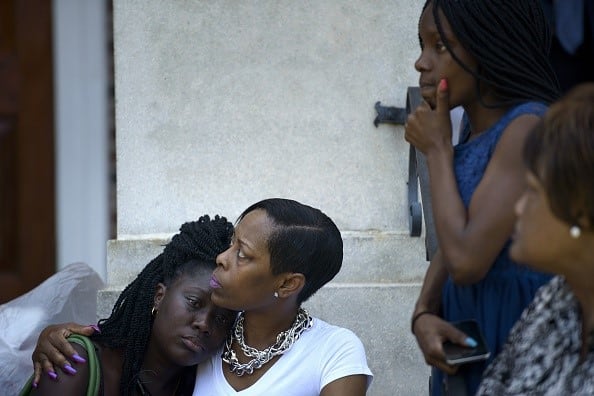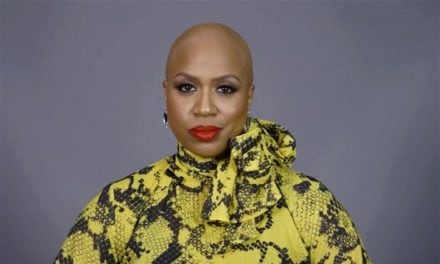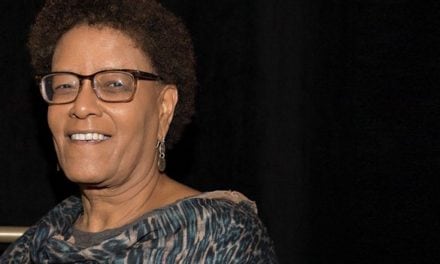Plenty of black women are living bold, self-defined, purpose-filled lives. Many of us are making our mark in a vast array of community, family, professional and entrepreneurial endeavors. We’re thriving — even though our stories are sometimes obscured by splashier headlines about our poor health, our questionable marital prospects, our economic status and even our alleged anger. In this series, Fierce will celebrate what’s going right in our lives. In other words, forget the negativity. This is what being black and female really looks like!
We’ll look at how we’re building on our strengths and how we’re upholding our legacy of making life work for our loved ones and ourselves. In the series opener, journalist Katti Gray profiles three women who share their secrets to balanced, successful, fulfilling lives.
By Katti Gray
“Have a ‘brand-tastic’ day,” Melissa Dawn Simkins says to herself, upon returning to her northern Virginia office after two days of schooling yet another corporate client on the fine points of retaining good employees.
Simkins jump-starts her morning with this mantra, which is her executive leadership firm’s signature and sign-off on voice-mail recordings.
Then, she dives into the to-do list for her Velvet Suite Marketing Consulting Group, which also has an outpost in Atlanta.
Simkins, 36, launched Velvet Suite in 2006. That year, she traded in a decade as a marketing strategist and innovator at such international conglomerates as Victoria’s Secret and Procter & Gamble.
Other folks view her as something of a high-flyer with clients such as Citigroup Inc., Home Depot, chef G. Garvin, 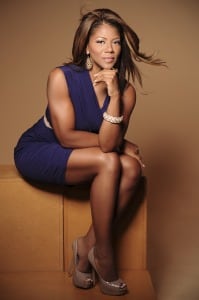 comedian Rajiv Satyal and actor-activist Hill Harper. While her self-perception is more modest, she learned what it means to forge ahead as a child and as an adult from her father, a janitor, who was born and reared in mostly black Gary, Ind. The janitor’s gig was temporary, providing a salary to help her father sustain their family and cover tuition for a Ph.D. that eventually made him a career educator.
comedian Rajiv Satyal and actor-activist Hill Harper. While her self-perception is more modest, she learned what it means to forge ahead as a child and as an adult from her father, a janitor, who was born and reared in mostly black Gary, Ind. The janitor’s gig was temporary, providing a salary to help her father sustain their family and cover tuition for a Ph.D. that eventually made him a career educator.
Simkins grew up in nearby Bloomington, Ind. On the first day of first grade, the white kids refused to let her, the only black child, sit beside them on the school bus.
“Those kids were mean. They called me ‘colored girl,’ not by my name,” she says. “As this was going on, I kept thinking: They say ‘Nothing good came out of Gary, but Michael Jackson was from Gary. His initials are M.J. My initials are M.J.’ I internalized in my own mind that I had value.”
Little Melissa Johnson’s mental pushback was, in part, the outgrowth of having watched her dad. In a nation where place, race, income and gender can impose a slew of constraints, little Melissa was absorbing what her father modeled about refusing to be pigeonholed by outsiders and about charting a course toward self-styled success.
Simkins’ shining resume, in many ways, signifies the reality that great numbers of black women across this country do thrive. Even so, these stories are often sidelined by topics such as the disproportionate tally of black females who are underemployed, overweight, avoidably ill, and less likely than other women to realize the happily-ever-after dream of having a well-to-do husband, white picket fence and well-adjusted kids.
To be sure, those headline-getting statistics spotlight some unfortunate truths for many in a sisterhood that could use some shoring up in certain crucial areas. Still, they don’t tell an expanded truth whose core is this: Plenty of black women are racking up successes, modeling for their neighbors what it means to achieve. Plenty are living lives directed toward their personal fulfillment, yes, but also at fortifying their families, the communities where they reside and the social and professional circles they inhabit.
Daring to Be Independent
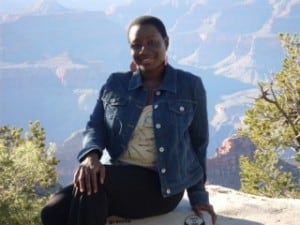 Debunking assorted myths — and encouraging a more thoughtful public discourse about black women — is part of many black women’s everyday work. It’s a task that Tamika Simmons, 43, an insurance company executive in Phoenix, Ariz., says she consciously undertakes.
Debunking assorted myths — and encouraging a more thoughtful public discourse about black women — is part of many black women’s everyday work. It’s a task that Tamika Simmons, 43, an insurance company executive in Phoenix, Ariz., says she consciously undertakes.
She’s embraced some, but discarded other expectations that were foisted upon her as she came of age. She got the requisite college degrees, one in journalism, one in law. As the oldest of four sisters, as an auntie, as a mentor of younger women and women colleagues at the office, she gives away great chunks of herself, tangible and not.
In the realm of romance — at a time of seemingly historic rates of singleness among black women — Simmons says she has loved herself enough to let love find her. And it arrived in the form of a tender, generous, doting man who happens to be white.
Daring to be that independent, says Brooklyn-born and -reared, Afro-wearing Simmons, “is part of what makes me fierce in my own eyes.”
Redefining Success
Crystal James Goodwin, 46, a wife and mother from Teaneck, N.J., is BET International’s director of programming and content management. During the Great Recession, whose effects still linger, she and her husband agreed that he’d return to college. Since earning his master’s degree in public administration as the top-rated student in his program last May, her spouse has gotten a few temporary jobs in construction and elsewhere. He is still scouting a position to match his academic pedigree.
“I’ve been carrying this load,” says Goodwin, currently her household’s main breadwinner. “You have years that are quiet, and you have years of ‘What the hell is going on?’ We try to make the best of this. We can be cracking up laughing about something silly while we’re picking quarters out of the penny jar. I’m holding it down for this whole family because this is what we have to do,”adds Goodwin, who has a 6-year-son and two 20-something stepdaughters whose biological mom died two years ago of cancer.
“In the space that I am in right now, I am tired. Yes, I am. But I’ve got to put on some hair and some makeup and go do it again tomorrow.”
She lets her laughter rip. “And somehow,” she continues, “my faith lets me take a whole lot of pleasure in doing this.”
A key ingredient to any black woman’s success is refusing to buy into the myth that “despite everything going on, we have it all together,” Goodwin says.
Trusting that, with time and effort, a successful woman does pull it all back together is also an essential credo, Goodwin and other women say.
Learning to Get Up
Executive trainer Simkins says she certainly has allowed herself to be supremely human. She has grown by learning to get up after falling down.
In 2002, Simkins lost her first fiancé to a sudden heart attack. It was a long road, but she found love again. In June 2013, she married a good brother whom she met during homecoming at Morehouse College last fall.
During that journey, she’d left Procter & Gamble with a clear sense of professional mission. Her work would be more than just work. It would be a ministry aimed at helping others to identify and hone their sense of purpose.
At the start of her self-employment in 2006, however, a potential deal with a big-name initial client fell through. The business was in trouble before it could get off the ground.
“In that season when it was hard and dry and nothing was there, I was still sowing,” Simkins says. “I did the same thing every day. I got to work. I made phone calls and presented myself as if the business was thriving when it was not. I sowed and tithed at my church when I had [very little] money. I talked about ‘my husband’ when there was no man in sight.”
“I’ve had what you might call breakdowns along the way,” she recalls. “Friends loved me through it. And the entire time, I kept in mind that everything that I planted had to grow, just had to grow.”
The ups and downs of her success, she says, are instructive. They contain lessons for herself, other black women and people of any stripe who ponder the essence of success and what it takes to win it.
Simkins offers a side note. “We are resilient,” she says. “We handle a lot and deal with a lot on many levels. We often are pushed to the forefront as the sister with the attitude or who doesn’t need a man, and so much of that part of our story simply is not true.”
Clarifying the fullnessof the narrative about black women, about what they do and how they do it, Simkins adds, is part of the glorious work demanded of a black woman in these times. She believes that she and many, many others are up for the task.


